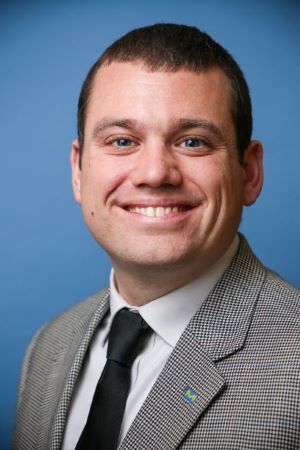Work and Caregiving: A balancing act?
November 25, 2019
Caregiving can take many forms, including caring for an older parent, a partner diagnosed with a serious illness, or a child living with a disability. According to the Caregiving in the U.S. 2015 Report, the title of “family/unpaid caregiver” applies to 43.5 million adults in the United States that provided unpaid care to an adult or a child in the prior 12 months.
As our population continues to get older, and the number of individuals who are caring for a loved one increases, it’s clear that the emotional, physical and financial impacts associated with caregiving are a growing public health crisis.
A recent survey from the Harvard Business School conducted in the United States of 1,547 respondents, shows 32% of employees left a job during their career due to caregiving responsibilities. Of those caregivers interviewed, more than 80% said caregiving affected their work productivity. They worry that there simply isn’t enough time in the day to be both an effective employee and a reliable caregiver for the loved ones who depend on them.
A 2019 Massachusetts State of Care Survey questioned 420 unpaid/unprofessional caregivers aged 18-75 and revealed some startling statistics[i]:
Many of these individuals are walking the proverbial tightrope, trying to balance providing around-the-clock care for a loved one, while still maintaining a full or part time job.
Balancing work and caregiving responsibilities is part of the day-to-day norm for caregivers, and as a result, a majority may end up making accommodations such as amended work schedules, taking a leave of absence, turning down a promotion, or retiring early. When caregivers feel compelled to quit their jobs, it has a negative effect not just on their individual careers but on the entire economy.
According to the 2006 MetLife Caregiving Cost study, the total estimated cost to employers for full-time employees with intense caregiving responsibilities is $17.1 billion. However, investing in working caregivers has demonstrated a positive return on investment (ROI). Research shows that there is a positive ROI for policies that enable caregivers to balance their jobs with caregiving responsibilities. For example, according to one study from the AARP and ReAct, for every $1 invested in flextime, businesses can expect a return between $1.70 (assuming average annual salary of $50,000) and $4.34 (assuming average annual salary of $100,000).
EMD Serono is proud to join together with other leading Massachusetts-headquartered employers, including AARP Massachusetts, Archangels, Cigna New England, Executive Office of Elder Affairs, Massachusetts Business Roundtable, Massachusetts eHealth Institute, and Seniorlink to establish the “Massachusetts Caregiver Coalition of the Willing”, designed to assess and actively address the needs of caregivers.
To recognize and honor family caregivers during National Family Caregivers Month this November, the Coalition officially launched last week (learn more here), releasing a Massachusetts State of Care Survey and an Employer Toolkit. This Massachusetts Employer Toolkit is designed to educate employers on their caregiver employee needs, provide access to case studies and existing resources, as well as share international best practices, in hopes of helping caregivers balance their work and caregiving responsibilities.
At EMD Serono, we understand the importance of investing in caregivers and recognize that many of our own employees are seeking balance as caregivers. It’s one of the reasons why Merck KGaA, Darmstadt, Germany, which operates its biopharmaceutical business in the United States as EMD Serono, launched Embracing Carers™ in 2017 to help raise awareness of the financial, economic, and healthcare challenges that caregivers face, and to serve as a platform to advocate for better workplace policies on caregiving. By continuing to work together, we hope that others consider caregiver support as a critical component to help their own teams balance their caregiving responsibilities.
[i] The 2019 Massachusetts State of Care Survey questioned 420 unpaid/unprofessional caregivers aged 18-75 in Massachusetts.
Be sure to stay updated on all insights and more by subscribing to our news updates.


Author Scott Williams is the Vice President, Head of Global Patient Advocacy and Strategic Partnerships at EMD Serono.